The Power of Primaries
As usual, an attempt to explain congressional behavior brings us back to the issue of our basic institutions. The way we elect congress matters.
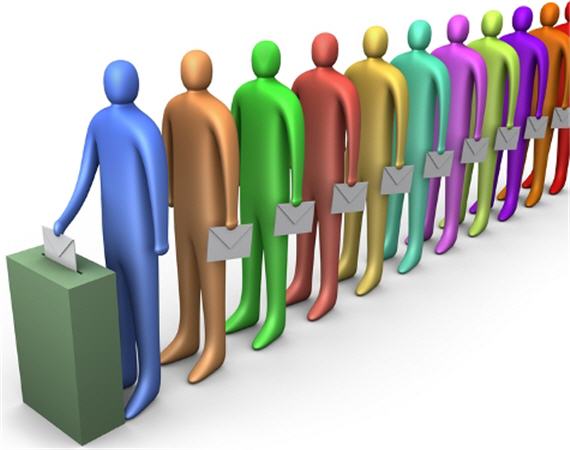 Political Scientist Seth Masket explains The logic of voting for a hated bill.
Political Scientist Seth Masket explains The logic of voting for a hated bill.
The question:
House Republicans just did something that looks, at first glance, like political suicide. They passed the American Health Care Act, a remarkably unpopular piece of legislation that would take away benefits that many of their own constituents currently enjoy. Why would they do this?
[…]
So why would Republicans do this? They already face a difficult election next year — midterm elections are often rough on the president’s party, even when the president is popular, which Donald Trump is not. Why make things tougher?
The answer:
In a sense, this demonstrates the importance of voters and activists who are involved in Republican primaries and caucuses. Republicans have been running for federal office for four consecutive cycles vowing to repeal and replace Obamacare as their first priority. It’s been an enormously popular cause with the conservative base.
What’s more, Republicans have seen a number of their colleagues go down to defeat in primaries in recent years for not being conservative enough. Eric Cantor’s loss still echoes in the Republican caucus. Trump has threatened to support primary challengers to Republicans who oppose the health bill. As congressional districts have grown safer, members are generally less worried about general election voters than they are about those who will show up in next year’s primaries.
Emphasis mine.
There are two themes I frequently return to in my writings here at OTB. One is that our electoral system does not do a very good job of representing public preferences and the role primaries play in our system are totally underappreciated, if not totally misunderstood.
A couple of past posts as examples of the two genres in question.
In regards to lack of representativeness/competition:
- From 2011: There is Something Fundamentally Wrong with Congress
- From 2014: Competitive House Districts: A Rarity
- From 2014: Noncompetitive House Elections
- From 2014: Unopposed in House Elections
On the role of primaries:
- From 2013: Nomination Mechanisms and GOP Party Evolution?
- From 2014: A Quote on Primaries
- From 2015: No, the US is not on the Verge of a Multi-Party System
- From 2015: Trump and American Political Parties
In regards to the overall system: using single member districts to elect the Congress does not produce outcomes that are broadly reflective of the views of citizens as a general principle. By definition our system makes it impossible for even very large minorities in a given district to be represented, and smaller groups can forget about it (i.e., if 40% of a district is Republican, their views are not going to be addressed by their member of congress, and certainly if 10% of a district are libertarian they are definitely ignored). All of this is made all the worse by the fact that geographical sorting of voters further cuts down representativeness when members are elected by geographically delimited single seat districts. Add in gerrymandering (which is problematic, but not the main culprit) and you have a system that is not as democratic (in the since of being representative) as it appears on the surface.
Take all of the above and throw in primaries as the means of selecting the candidate who run and you have created a system wherein the primary is very frequently far more important than the general elections. If I am a Republican candidate running in a predominantly Republican district (regardless of whether this is because of geographical sorting, gerrymandering, or happenstance) the bottom line will be that I am far more interested in pleasing the voters in the primary than I am in pleasing the voters in the general election. To be more specific: if the partisan split in my district is consistently 65% Republicans, 30% Democrat, and 5% other, then I know that I will win as the Republican nominee, barring some really unusual situation. Therefore, all I really care about is making sure that I am the Republican nominee. To do that I have to please the base of my party which turns out in primary elections (which tends to be a very small segment of the electorate). Keep in mind that turnout in these contests is typically quite low (often in the single digits, making it easier for one group to dominate). This means that the actual selection of many members of congress is not by the larger (but still anemic, usually) turnout in the general election, but as the result of the actions of a fairly small, and ideologically skewed, slice of the electorate of the dominant party in a given district.
So, if we couple the noncompetitive nature of most congressional elections with the fact that the nominees are selected in a way that often skews how representative they are of even the dominate party in that district (let alone the general electorate) and the basic behavior of congress starts to make a bit more sense. This is especially true for the Republicans in recent years as there has been an ongoing, organized attempt to use the primaries as a vehicle to elect a new faction of the party. In short: without primaries, you likely don’t have the Tea Party/Freedom Caucus.
All of this needs broader public discussion, because it undercuts the narrative that we are the “Greatest Democracy in World” because you can’t be that if your elections do a poor job of representing the populace. Further, we tend to think of primaries as a great example of democratizing politics and taking power out of the hands of elites (a view I used to subscribe to), but the irony there is that the “democratization” of nominations actually removes responsibility from the hands of the party and makes it harder, not easier, for voters to hold them accountable. This makes representative democracy harder, not easier (especially when members of congress do not feel responsible to broad constituencies). Speakers Boehner and Ryan both, to cite recent examples, could legitimately say that a lot of the troubles they have had governing are not their fault, at least in the sense that the nomination system produces party factions that owe loyalty to the primary voters, not to the party (part of the reasons to have parties is to create a means by which to hold a group of politicians collectively responsible*). This may sound appealing in some ways, but I would note that the practical result has been that often the tail (the Tea Party/Freedom Caucus) has frequently wagged the dog (the House leadership). Go back and look at the last government shutdown and the games of chicken over the debt ceiling.
In short: we (as a country) like to talk as if the process reflects a large competition between two opposing blocs who are making appeals to the broad population and the side that makes the best case wins. This is not the case.** Rather, the actual behaviors of politicians are linked to whatever their pathways are to maintain their power. In the vast preponderance of elections in the US that pathway is the primary election–a process that is low on the priority list of most Americans. It is hard to get systematic turnout data for these contests, but here are some estimates (along with some on point observations) from a recent Brookings study:
Counting only contested primaries, William A. Galston and I calculated (with assistance from Professor Hahrie Han) that turnout in 2002 contested primaries averaged 5.4 percent of the voting age population, in 2006 it averaged 4.6 percent and in the highly contested primaries of 2010 it averaged only 7.5 percent.26 These exceedingly low numbers reflect the fact that in many congressional primary races the challenger is unknown and underfunded. The poor quality of congressional challengers and the obscurity of most congressional primaries mean that congressional primaries are extraordinarily low turnout events — that is, when they are contested at all. Even in highly polarized election cycles, the vast majority of incumbents have either no challengers or insignificant challengers. Hence, we have a classic vicious circle: low turnout equals low-media interest and low-media interest reinforces low turnout. No wonder that the Republican establishment was so surprised in 2010 when the Tea Party defeated some of its candidates.
We are talking, therefore, about single digits of the voting age population having a profound influence over the behavior of congress.
And that is how we get things like the vote on the AHCA. Regardless of one’s views on either the AHCA or the ACA, the bottom line is that it is hard to look at the process that led to the vote this week and feel like it was a well thought out attempt at policy-making. Any serious analysis of the process has to see it as more about signaling and symbolism than about a serious attempt at health care policy.
—
*A side note: our system (specifically executive-legislative separation of powers, and a bicameral legislature) already makes holding politicians accountable difficult, but the themes discussed above only makes it even harder. The more diffusion of power there is in a system, the easier it is to blame someone else for what goes wrong.
**To go beyond legislative power, see also: the electoral college (but that is, as we know, its own conversation).

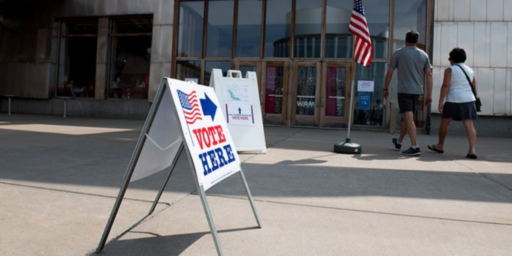
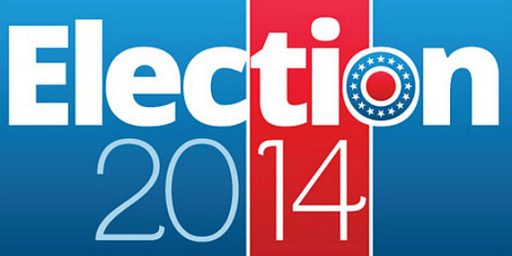
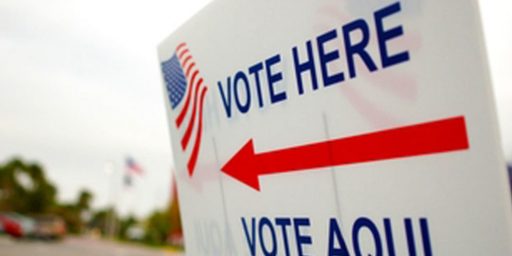
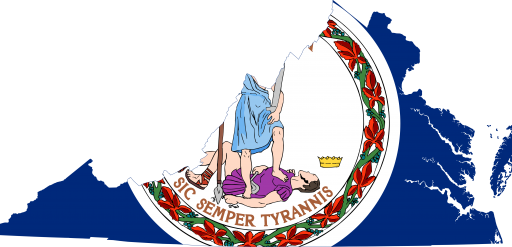
Reality is so depressing some times.
Shorter: anyone who likes law or sausage should not watch them being made.
@Dave Schuler: On one level, sure. But that is not the point at all. The point is that we often think that the sausage recipe is X, when in fact it has a lot more Y in it than we realize (if we realize it at all).
Put another way: we, collectively, do not understand our own institutions.
(If we knew what was going into the sausage, we might demand a new recipe).
I see your point, but the ultimate culprit here is that the US has a major political party (the Republicans) that is comprised of a coalition of extremists that markets itself to extremists. This is a core ideological flaw of the party itself, and it has engineered that to work within the context of FPTP voting
To break the cycle, Republicans who aren’t quite so crazy have to go to war with their extremist wing, either by fighting for control or else by defecting en masse. But they don’t wish to do that because they realize that such an effort will help the Democrats over the short run, and they care more about power than justice.
All voting methods and systems have their pros and cons. In the US case, we need more mechanisms that can keep the fruitcakes under control. The parties should have a moderating effect, but the Southern Strategy broke down that system.
I recently stumbled across a very good blog post Choosing Racism: The Southern Strategy. They go back before Nixon to Goldwater’s supporters, and the party more generally, embracing race as a campaign tactic. Much of the post has to do with Jacob Javits in a 1963 Op-Ed in NYT warning that what has now happened to the Republican Party would happen.
We are the oldest major democracy. For the first shot at it, the Founders got a lot right in the Constitution, but they failed to anticipate the (almost immediate) rise of parties. This has evolved to mostly benefit the conservative party. Add the dominance of the conservative party to the inherent difficulty of amending the Constitution, it’s hard to see a way out.
One could hope for the strains between the Freedom (sic) Caucus and the more establishment and swing district GOPs would lead to a breakup of the Party. But I think it’s more likely the establishment GOPs will adopt the anti-immigrant, anti-trade rhetoric as a tool to keep power. They’ve been perfectly willing to dog-whistle racism. All they’ve learned is that they can be more blatant.
The only hope I see is that Trump and the GOP Congress prove so awful they provoke a wide spread backlash.
@gVOR08: More accurately, the constitution has a significant conservative element to it, which I mean that it is makes change difficult and helps preserve entrenched power. This is largely distinct from their blindspot regarding parties.
@Pch101:
Thanks for the belly laugh. Amazing, is it not, that all the angels, wise and capable wound up as Democrats. Shazam.
“which I mean that it is makes change difficult and helps preserve entrenched power.”
It also limits Pet Rock crazes. I don’t suppose it occurs to anyone to limit entrenched power by limiting power.
@Guarneri:
Inappropriate laughter is an indication of social awkwardness and a lack of smarts.
@Steven L. Taylor:
Hamilton seemed to believe that checks-and-balances would deter the formation of factions, which would allow logic and reason to win out over special interests.
It would appear that he was a bit off the mark.
Clinton vs Trump.
What else needs to be said about the working of our system?
@Pch101:
I may be missing a reference, but it was Madison who had a iterated theory of factions (see, e.g., Fed 10). He though they would coalesce around specif topics and then go away with new factions arising around different issues. He did not see permanent factions (i.e., parties).
He was also skeptical of human capacities, men not being angels and all that (see Fed 51).
The easiest way to deal with gerrymandering would be to vastly increase the number of represenatives. The more congressional districts there are in a state, the harder it is to systematically bias the partition away from the general population
@Stormy Dragon: I would agree that the House is too small relative to the population. However, even with more seats, a lot of the problems of the current system would still be present.
@Pch101: @Pch101:
And recognition of absurdity…,,
I do a lot of laughing at comments here.
@Guarneri: Perhaps you should check to see if you where you are on the autism spectrum. The character you portray here shows several signs.
I’ve got a plan.
Let’s use Article V of USCon and lobby the Federal Congress and the State Legislatures at the same time to assemble conventions to “propose Amendments to this Constitution,”.
This approach will ensure that at least one Convention will occur and we are on our way to Utopia!
One of the first orders of business will have to be drafting Amendments to grant Constitutional sanction to Political Parties.
Now that Texas has jumped on this band wagon a new Con Con is only 23* more State Legislatures away.
Looks like Sen. Hughes wants to establish a Lone Star Chamber to ensure delegates toe the line.
If other States follow suit this could be a real riot!
*The Convention of States FaceBook page says TX is the 11th State Legislature to pass a “Convention of States Resolution”, whatever that means.
(Still can’t figure out how a credentials committee to an Art V convention would be organized.)
Excellent piece Steven, it explains the problem well.
A few commenters have ideas on thin solutions to bits and pieces of the problem – I’d love to hear yours.
I would like to believe the solution is in education and evangelization, but those guys who crawled under my house last week to install a sump pump are never going to be willing to be educated in these matters.
@Steven L. Taylor:
I uinderstand your point but I also think that even if all of the areas you identify were reformed we’d still have the same problems because of a) the very large size of districts; b) how elections are funded; c) human nature.
@Dave Schuler: Well, I wasn’t proposing a solution here, but an explanation of one key element of our politics that is almost never fully and totally explained–it certainly does not inform coverage and discussions of these matters in the media. (And I am not going to pretend like 800ish words on a blog post is a full explanation).
Also: I was not proposing a mono-casual unified theory. Yes, the size of districts matters (or, the type of districts used, for that matter), as does campaign finance. Human nature is also a constant, but it is empirically true that if we changed the electoral system that same human nature would produce a different party system and, therefore, different legislative behavior.
Change the rules, people play the game differently. I am not expecting this to happen any time soon if ever, in the US, but it would be nice if a) the general population better understood how things work, and b) those who do understand would not dismiss conversation about these dynamic because nothing will ever change (which is usually what some commenters say whenever I write about this kind of thing).
If Canadians and the British can have conversations about electoral reform, even to point of seriously debated legislation, then we can too, at some point.
@Tony W: I think that the place to start, meager as is it, is to get the politically aware to at least understand the discussion. The reality is that most people, even highly educated ones, do not know that electoral systems can vary, or that they matter. Even people who study American politics are often trapped in a very US-centric view of these things.
As I was saying to Dave above, the general reaction to these kind of conversations is either lack of understanding or dismissal of the topic because things will never change. It may well be that things will never chance, but it would be nice if we at least understood the implications of the debate.
Personally, I think a huge problem is an assumption that our system comes from The Founders and therefore is perfect in every way and only contemporary politicians frak it up–so the focus becomes on getting better politicians (good luck with that) rather than looking to more fundamental issues.
This is the best argument I’ve seen yet for proportional representation on statewide basis. Not completely sold on it but I wonder if a state could do that on their own under the Constitution.
One thing I have become sympathetic to is the idea of instant runoff elections and (especially) primaries. I think that might have prevented Trump.
@Steven L. Taylor: Put another way: we, collectively, do not understand our own institutions.
Those institutions functioned reasonably, if not perefectly, for GENERATIONS.
The system is not the problem. The problem is that, even with the GOP track record of the last 25 years, I believe Steven Taylor and people like him would have still voted for someone like Jeb Bush or John Kasich to continue the same politics and policies.
I don’t see how anyone can look at the last few decades and say it’s the result of good people trapped in a bad system. It’s pretty much the opposite.
Mike
@MBunge: You are helping making two of my points: 1) People don’t understand our institutions, and 2) People assume that the story we tell ourselves about the past is accurate.
@MBunge:
In truth, I am not sure how you infer that conclusion from my post.
@Tony W:..Is it the “crawled under the house” part or the “install a sump pump” part of “those guys” activity that precludes them from “being educated in these matters”?
@Steven L. Taylor:
Federalist 51, which argued for checks and balances:
Here it is being claimed that checks and balances will prevent a tyranny of the majority. What was missed is that there can also be a tyranny of the minority by obstructionists who seek leverage for its own sake. Special interests that aren’t even special but to a few people.
(I had forgotten that is not known whether Hamilton or Madison wrote that one.)
@Pch101: It is pretty well established the Madison wrote 51, although in some older editions of the Federalist Papers it is indicated that it is unknown.
I am not sure that passage supports the assertions you made above.
I will agree that they did not understand how minorities could obstruct–but, of course, the main tool of minority obstruction (rule of the Senate) developed later.
And, of course, the way state populations have evolved has empowered minorities in the Senate (and in the EC).
@Steven L. Taylor: While I am one of the things-are-not-likely-to-change group (but I try to avoid saying never), I agree with you that knowing the scope of the issue and that there are alternative theories out there is good, even if only in an academic sense. Thank you for the post. Both the topic and your point are important.
One thing that I’m not so clear on is why multiple seat districts would change behavior. In Washington State, where I live, it seems to me that the trend is for voters to elect two candidates from the same party to both Position 1 and Position 2 of their legislative district. If electors tended to split, I could see where some moderation would happen, but they appear not to. Or am I incorrect?
Good post Steven.
Given that the chance of getting a parliamentary system or even proportional representation (and yes, I believe there is no Constitutional impediment to a state implementing proportional voting), the next best, but imperfect option maybe open primaries.